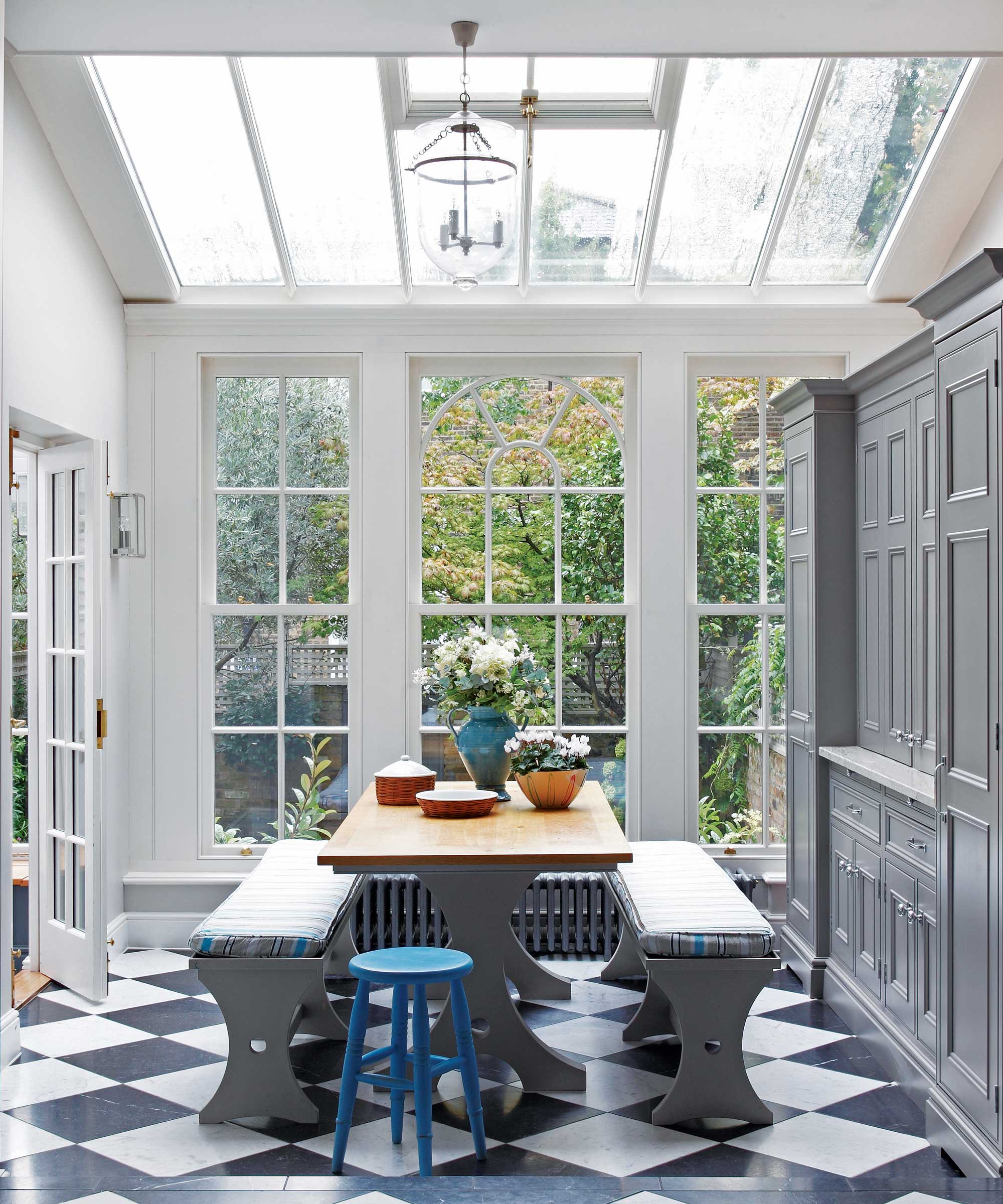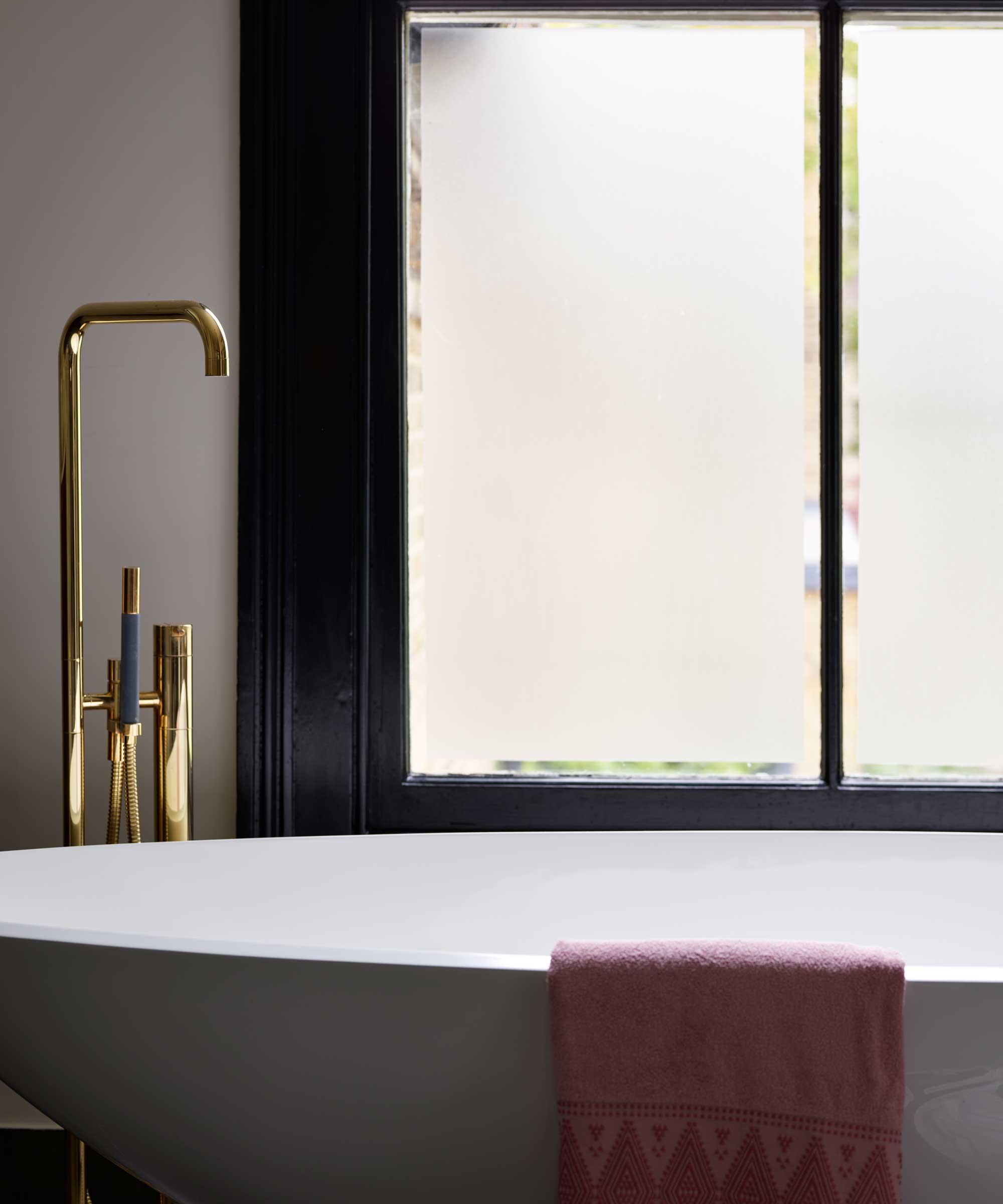Does opening windows in winter reduce condensation?
We explain how to allow in crisp outdoor air while keeping a comfortable indoor temperature


Condensation and mold are common issues in the winter and, when left unchecked, can potentially damage wood window frames, drapes, carpets, and walls. Moisture can also reduce the quality of the air we breathe indoors, possibly aggravating allergies.
For those of us who feel the cold, opening windows in winter is the last thing we want to do, and it can feel like we are throwing money away.
We asked the experts if opening windows when it's freezing outside is an effective way to get rid of condensation inside windows.
Will opening windows in winter help to reduce condensation?
Cracking a window for brief periods will always refresh the air and help to reduce indoor pollutants, and from a Feng Shui perspective, will keep the energy flowing in winter.
Opening windows for brief periods of time does help de-fog them, and is generally recommended.

Why it works
First, it's helpful to go back to the basic physics of what is causing the condensation in the first place. This will show us that opening a window does help to reduce condensation, but, as we'll look at later, it's not a long-term solution and needs to be done in short intervals.
As Gus Pullen, owner of Pure Maintenance, a mold remediation company in Houston, Texas, reminds us, condensation occurs when warm air comes in contact with a cold surface. 'The best example is when you have a cold cup of water on a hot day. Warm air hits the cold surface and condenses,' Gus says.
So, given that in the winter, the outdoor air is typically colder and drier, opening windows can help reduce indoor humidity and prevent surface condensation.

Gus Pullen is the owner of Pure Maintenance of Texas, a mold remediation firm that uses dry fog mold removal. Gus founded the company to help others after his family experienced health effects of hidden mycotoxins after their home flooded during Hurricane Harvey of 2017.
Does the outdoor humidity matter?

The exchange between colder and drier outdoor air and warmer, more humid indoor air helps with condensation and therefore mold, but in winter months it is impractical to leave windows open for extended periods. So there is a balance to strike between opening windows to refresh the air and reduce the overall humidity, and keeping your home feeling warm and comfortable to be in.
But what about the outdoor humidity? It's worth checking the levels of humidity outside before opening windows, says Gus Pullen. 'If it's too humid outside, any open windows or doors may increase the indoor humidity, create additional condensation, and potentially lead to a mold problem,' Gus adds.
However, according to building biologist Corinne Segura, opening windows will still work even if the outside relative humidity is very high. This is because cold air holds so much less moisture than warm air, so bringing in cold air and heating it will bring in dry air, reducing indoor humidity.
How to strike a balance

Remember that cooking, bathing, using a humidifier and even simply breathing all add moisture to the air, and that there are other ways to help keep humidity down. For example, you can use one of the best dehumidifiers on the market, clean or install new exhaust fans in bathrooms and kitchens to ensure good ventilation, and avoid 'cold spots' by heating your property more evenly.
Opening window ventilation strips, if you have them, will allow a small amount of air in, which will help in rooms particularly prone to moisture.
Excess levels of moisture on windows can simply be wiped down with a dish towel, at Amazon in the morning if you often get condensation on windows overnight. A window vacuum, also at Amazon is a great way to keep them clean, too.
Corinne Segura suggests looking for any problem areas causing your humidity to be high: 'If your humidity is still high in the winter you should look into areas of possible water ingress, where the slab, roof, or walls are taking on water which is drying out to the inside,' she says.

Corinne Segura is a building biologist practitioner and the founder of My Chemical-Free House, where she tests and writes about green building materials. She has 8 years of experience as a green materials specifier, for new builds and renovations.
FAQs
Is it healthy to leave windows open in winter?
While it's beneficial for air quality, it's important to balance this with maintaining a comfortable indoor temperature, says Michael Golubev, founder of Mold Busters. 'Briefly opening windows several times a day can be effective without causing significant heat loss.'
Opening windows for ten minutes at a time, when the heating isn't on, will help to avoid unnecessary heat loss and increased heating bills. It's also a good idea to have your HVAC system checked as this affects the humidity in your home. And a system in good working order always helps to keep your house warm without turning up the heat.
Sign up to the Homes & Gardens newsletter
Design expertise in your inbox – from inspiring decorating ideas and beautiful celebrity homes to practical gardening advice and shopping round-ups.

Millie Hurst is a freelance lifestyle writer with over six years of experience in digital journalism. Having previously worked as Solved Section Editor at Homes & Gardens and Senior SEO Editor at News UK in London and New York, Millie has written for an array of homes brands including Livingetc and Real Homes and was formerly Senior Content Editor at Ideal Home. She has written and edited countless features on home organization, decluttering and interior design and always hopes to inspire readers with new ways to enjoy their homes. She loves to weave nature-inspired decor and nods to time spent in Italy into her own home.
-
 'Sexy disco-era Italy meets Japanese farmhouse in the Brazilian jungle' was the description the interior designer gave this glass-walled modernist home
'Sexy disco-era Italy meets Japanese farmhouse in the Brazilian jungle' was the description the interior designer gave this glass-walled modernist homeOffering a warm welcome that defies its stark, modernist lines, this archictectural gem is full of surprises
By Karen Darlow
-
 Are you making the most out of the estate sales in your area? These are the 5 most valuable items you should be shopping for
Are you making the most out of the estate sales in your area? These are the 5 most valuable items you should be shopping forVintage lovers and antique experts share the objects you should always look out for when you're exploring an estate sale
By Eleanor Richardson